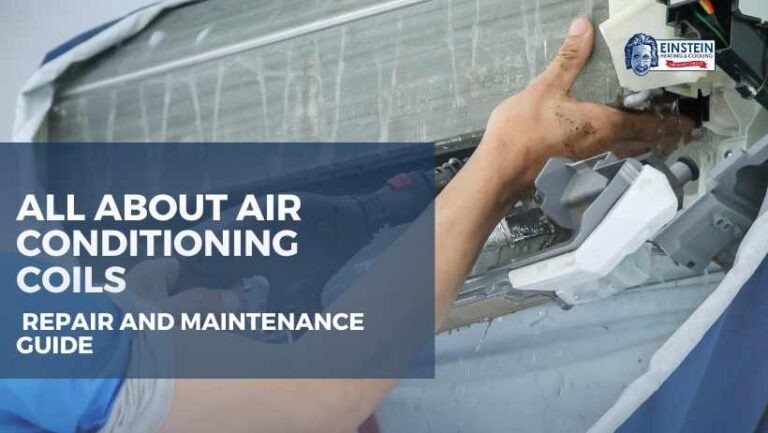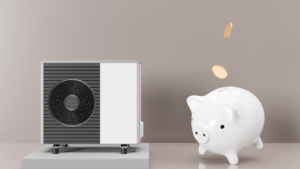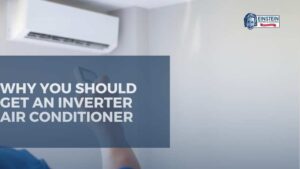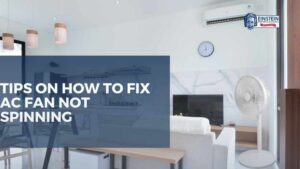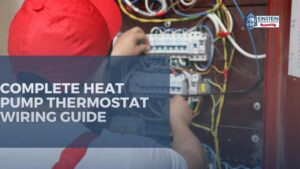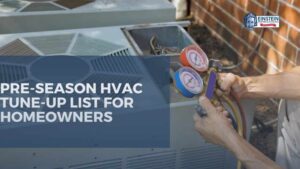When it comes to the efficiency and longevity of your air conditioning system, one crucial component that often goes unnoticed is the air conditioning coil. These coils play a pivotal role in the heat exchange process, ensuring your AC unit works seamlessly to cool your living or working spaces. In this comprehensive guide, we’ll delve into the intricacies of air conditioning coils, covering everything from their types and functions to maintenance tips for optimal performance.
1. Understanding Air Conditioning Coils
Evaporator Coils
- Evaporator coils are located inside the indoor unit of your air conditioning system. Their primary function is to absorb heat from the air inside your space, turning the liquid refrigerant into a gas. This process cools the air, which is then circulated back into your home or office.
Condenser Coils
- On the flip side, condenser coils are situated in the outdoor unit. Once the refrigerant absorbs heat from inside, it travels to the condenser coils, where it releases the absorbed heat into the external environment. This causes the refrigerant to condense back into a liquid state, ready to repeat the cooling cycle.
2. Types of Air Conditioning Coils
Copper Coils
- Copper coils are the most common type used in air conditioning systems. They boast excellent heat transfer capabilities, durability, and corrosion resistance, making them a preferred choice for many HVAC systems.
Aluminum Coils
- Aluminum coils are lighter than copper coils and are often used in more cost-effective air conditioning units. While they may not be as durable as copper, proper HVAC maintenance can ensure their efficiency and longevity.
Coated Coils
- To enhance durability and resistance to corrosion, some coils come with protective coatings. These coatings can be applied to both copper and aluminum coils, extending their lifespan and maintaining optimal performance.
Stainless Steel Coils
- Stainless steel coils are known for their exceptional corrosion resistance and strength. They are suitable for harsh environments where corrosion is a significant concern. While not as common as copper or aluminum coils, stainless steel coils are favored in applications where long-term durability and resilience are paramount.
Hybrid Coils
- Hybrid coils combine different materials, such as copper and aluminum, to leverage the strengths of each. This results in a coil that offers a balance between heat transfer efficiency, durability, and cost-effectiveness. Hybrid coils are designed to optimize performance while addressing specific requirements, providing a versatile option for various air conditioning systems.
3. Factors Influencing Air Conditioning Coil Performance
Cleanliness
- Proper maintenance, particularly keeping the coils clean, is crucial for optimal performance. Dirty coils can lead to reduced heat exchange efficiency, higher energy consumption, and potential system malfunctions.
Airflow
- Airflow around the coils is essential for the heat exchange process. Ensure that there are no obstructions, and the surrounding area is well-ventilated to allow efficient heat transfer.
Refrigerant Levels
- Maintaining the right refrigerant levels is vital for the proper functioning of AC coils. Low refrigerant levels can lead to poor heat exchange, reduced cooling capacity, and potential damage to the compressor.
Temperature
- Extreme temperatures can impact the efficiency of air conditioning coils. It’s essential to consider the climate where the unit is installed and take necessary measures to protect the coils from harsh conditions. HVAC installation should be assessed by professionals to ensure proper zoning.
Humidity
- High humidity levels can contribute to the accumulation of moisture on the coils, leading to mold growth and reduced efficiency. Proper ventilation and dehumidification can help mitigate this issue.
4. Common Air Conditioning Coil Problems and Solutions
Coil Corrosion
- Choosing the best HVAC system is important as brands can differ in quality. Corrosion can occur over time, especially near the Arizona beaches. Regular inspections and applying protective coatings can help prevent coil corrosion.
Refrigerant Leaks
- Refrigerant leaks can lead to inefficient cooling, potential damage to the compressor, and urgent AC repair. Identifying and repairing leaks promptly is crucial for maintaining optimal performance.
Frozen Coils
- Frozen coils can result from issues such as low refrigerant levels or restricted airflow. Addressing the root cause and allowing the coils to thaw before restarting the system is essential to prevent further damage.
Coil Fins Damage
- Coil fins are delicate and can easily be bent or damaged. Using a fin comb to straighten fins and prevent airflow obstruction is a simple yet effective solution.
5. Regular Maintenance Tips for AC Coils
Regular Cleaning
- Schedule regular cleaning of both evaporator and condenser coils to remove dust, dirt, and debris that can accumulate over time. This helps maintain optimal heat exchange efficiency.
Coil Inspection
- Perform routine inspections to identify any signs of corrosion, damage, or refrigerant leaks. Prompt detection allows for timely repairs by expert HVAC technicians, preventing further damage to the coils and the entire HVAC system.
Professional Maintenance
- Engage professional HVAC technicians for annual maintenance checks. They have the expertise to conduct thorough inspections, identify potential issues, and perform necessary repairs or replacements.
Filter Replacement
- Clean or replace air filters regularly to prevent dust and debris from reaching the coils. Dirty filters can lead to reduced airflow, increasing the risk of coil freezing and other performance issues.
Coil Protection
- Consider installing coil protection devices, such as hail guards or coil covers, to shield the coils from external elements, weather conditions, and physical damage.
Fins Straightening
- Regularly inspect and straighten the fins on the evaporator and condenser coils. Bent or damaged fins can obstruct airflow, reducing the overall efficiency of the air conditioning system. Using a fin comb or a gentle touch, straighten any fins that may have become bent over time.
Condensate Drain Cleaning
- Ensure the condensate drain is free from blockages and debris. Clogs in the drain can lead to water accumulation, potentially causing damage to the coils and promoting mold growth. Regularly flush the condensate drain with a mixture of water and vinegar to maintain proper drainage.
Coil Surface Protection
- Apply a specialized coil cleaner or coating to the surface of the coils. This protective layer helps resist the buildup of dirt, grime, and other contaminants, reducing the frequency of cleaning needed and prolonging the life of the coils. Be sure to use products recommended by the manufacturer to avoid any adverse effects on the coils.
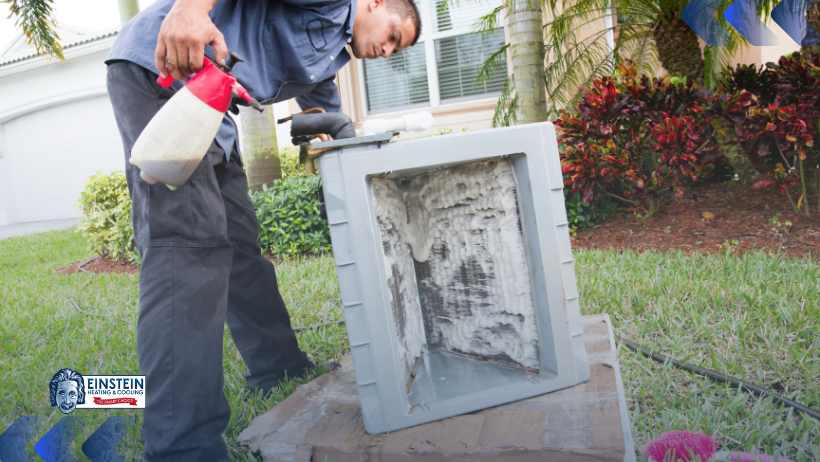
6. Upgrading Your Air Conditioning Coil
Consider Energy-Efficient Coils
- As technology advances, newer, more energy-efficient options become available. Upgrading to energy-efficient coils can not only reduce your environmental impact but also lead to cost savings on your energy bills over time.
Coil Sizing
- Ensuring the proper sizing of an AC condenser coil is essential for efficiency. Undersized or oversized coils can lead to increased energy consumption, decreased cooling performance, and potential system damage. Consult with HVAC professionals to determine the right size for your specific needs.
Enhanced Corrosion Resistance
- If you live in a coastal area or an environment with high humidity, opting for coils with enhanced corrosion resistance can significantly extend their lifespan. Look for advanced coatings or materials designed to withstand corrosive elements.
7. Choosing the Best Type of AC Coil Cleaner
AC Coil Cleaner Types
Non-Acidic Formulas
- Non-acidic coil cleaners are generally safer for both the coils and the environment. They effectively remove dirt and grime without causing corrosion or damage to the sensitive coil surfaces. Opting for a non-acidic solution ensures thorough cleaning without compromising the longevity of your AC coils.
Foaming or Liquid Cleaners
- Consider the consistency of the cleaner—whether it comes in a foaming or liquid form. Foaming cleaners tend to adhere better to the coil surfaces, allowing for deeper penetration and more effective cleaning. On the other hand, liquid cleaners may be easier to apply and rinse, providing a convenient option for regular HVAC servicing.
Compatibility with Coil Materials
Aluminum Coil Cleaners
- If your air conditioning system has aluminum coils, choose a cleaner specifically formulated for aluminum. Aluminum-safe cleaners prevent corrosion and damage to the coil’s delicate surface, ensuring that the cleaning process enhances efficiency without causing harm.
Copper Coil Cleaners
- For HVAC systems with copper coils, selecting a cleaner designed for copper surfaces is crucial. Copper-compatible cleaners effectively remove contaminants without compromising the integrity of the coils, safeguarding them against corrosion and extending their lifespan.
Effectiveness in Removing Contaminants
Grease and Grime Removal
- Look for AC coil cleaners with proven effectiveness in removing grease and grime. Coils often accumulate these substances, hindering heat exchange and overall system efficiency. An effective cleaner should dissolve and lift these contaminants, restoring the coils to their optimal working condition.
Mold and Mildew Prevention
- In humid climates, mold and mildew can thrive on AC coils, leading to potential health hazards and reduced system efficiency. Choose a coil cleaner with antimicrobial properties to not only clean existing mold but also prevent its future growth, ensuring a healthier and more efficient HVAC system.
Ease of Application and Rinsing
User-Friendly Application
- Consider the ease of application when selecting an AC coil cleaner. Opt for products that come with clear instructions and user-friendly application methods, allowing for hassle-free cleaning. Whether it’s a spray, foam, or liquid, the application process should be straightforward.
Residue-Free Rinsing
- After cleaning, a good AC coil cleaner should rinse off easily, leaving no residue behind. Residue can attract more dirt and impede the coils’ performance. Choose a cleaner that facilitates thorough rinsing, ensuring a clean and residue-free surface for optimal heat exchange.
Safety and Environmental Considerations
Low VOC Content
- Volatile Organic Compounds (VOCs) in cleaning products can contribute to indoor air pollution. Opt for AC coil cleaners with low VOC content to ensure a safer environment for both occupants and the ecosystem.
Biodegradability
- Consider the environmental impact of the cleaner. Choosing a biodegradable AC coil cleaner helps minimize the ecological footprint, ensuring that the cleaning process is not harmful to the environment.
8. The Role of Professional HVAC Services
Regular Inspections
- Professional HVAC services from expert HVAC technicians play a crucial role in ensuring the longevity and efficiency of your air conditioning coils. Schedule regular HVAC inspections to identify and address potential issues before they escalate.
Emergency Repairs
- In case of sudden malfunctions or breakdowns, having access to emergency HVAC services is essential. Prompt repairs can prevent further damage and ensure your air conditioning system gets back up and running quickly.
Expert Advice on Upgrades
- Consulting with HVAC professionals can provide valuable insights into the latest technologies and innovations in AC unit coil. They can guide you on potential upgrades that align with your specific needs and budget.
Conclusion
Understanding the intricacies of air conditioning coils is crucial for ensuring the efficiency and longevity of your HVAC system. Make sure to rely on professional HVAC services from Einstein Heating and Cooling for regular inspections, emergency repairs, and expert advice on upgrades. By actively engaging in responsible HVAC practices, you not only ensure the longevity of your AC unit coil but also contribute to a more sustainable and energy-efficient future for everyone.

